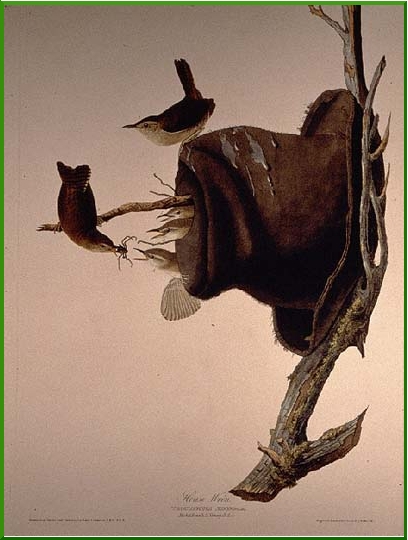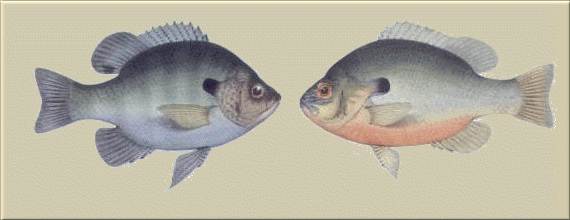
Volume 12

March - November, 1859




I feel it a greater success as a lecturer to affect uncultivated natures than to affect the most refined, for all culture is necessarily superficial, and its roots may not even be directed toward the center of the being.
The bluebird on the apple tree, warbling so innocently to inquire if any of its mates are within call -- the angel of the spring! Fair and innocent, yet the offspring of the earth. The color of the sky above and of the subsoil beneath. Suggesting what sweet and innocent melody (terrestrial melody) may have its birthplace between the sky and the ground.
Find out as soon as possible what are the best things in your composition, and then shape the rest to fit them. The former will be the midrib and the veins of the leaf.
There is always some accident in the best things, whether thoughts or expressions or deeds. The memorable thought, the happy expression, the admirable deed are only partly ours.
I see a small flock of blackbirds flying over, some rising, others falling, yet all advancing together, one flock but many birds, some silent, others chucking -- incessant alteration. This harmonious movement as in a dance, this agreeing to differ, makes the charm of the spectacle to me. One bird looks fractional, naked, like a single thread or ravelling from the web to which it belongs. Alternation! Alternation! Heaven and hell! Here again in the flight of a bird, its ricochet motion, is that undulation observed in so many materials, as in the mackerel sky.

We are interested in the phenomena of Nature mainly as children are, or as we are in games of chance. They are more or less exciting. Our appetite for novelty is insatiable. We do not attend to ordinary things, though they are most important, but to extraordinary ones.
Men's minds run so much on work and money that the mass instantly associate all literary labor with a pecuniary award. They are mainly curious to know how much money the author or lecturer gets for his work. They think that the naturalist takes so much pains to collect plants or animals because he is paid for it.
Only think how finely our life is provided in all its details -- sweet wild birds to fill its interstices with song! It is provided that while we are employed in our corporeal, or intellectual, or other, exercises we shall be lulled and amused or cheered by the singing of birds.
All our life, i.e., the living part of it, is a persistent dreaming awake.
What is often called poverty, but which is a simpler and truer relation to nature, gives a particular relish to life, just as to be kept short gives us an appetite for food.

I served my apprenticeship and have since done considerable journey-work in the huckle-berry field, though I never paid for my schooling and clothing in that way. It was itself some of the best schooling I got, and paid for itself. Occasionally in the summer forenoons, when perhaps a mantua-maker was to be dined, and a huckleberry pudding had been decided on, I, a lad of ten, was dispatched to the huckle-berry fields, all alone. My scholastic education could be thus far tampered with and an excuse might be found.
We start when we think we are handling a worm, and open our hand quickly, and this I think is designed more for the protection of the worm than of ourselves.
Bought a pair of shoes the other day, and, observing as usual they were only wooden-pegged at the toes, I desired the seller to put in an extra row of iron pegs while I waited for them. So he called to his boy to bring those zinc pegs, but I insisted on iron pegs and no zinc ones. He gave me considerable advice on the subject of shoes, but I suggested that even the wearer of shoes, of whom I was one, had an opportunity to learn some of their qualities. I have learned to respect my own opinion in this matter.
Again and again, I am surprised to observe what an interval there is, in what is called civilized life, between the shell and the inhabitant of the shell -- what a disproportion there is between the life of man and his conveniences and luxuries. The house is neatly painted, has many apartments. You are shown into the sitting room, where is a carpet and couch and mirror and splendidly bound Bible, daguerrotypes, ambrotypes, photographs of the whole family even, on the mantelpiece. Once could live here more deliciously and improve his divine gifts better than in a cave surely. In the bright and costly saloon man will not be starving or freezing or contending with vermin surely, but he will be meditating a divine song or a heroic deed, or perfuming the atmosphere by the very breath of his natural and healthy existence. As the parlor is preferable to the cave, so will the life of its occupant be more godlike than that of the dweller in the cave. I called at such a house this afternoon, the house of one who in Europe would be called an operative. The woman was not in the third heaven, but in the third kitchen, as near the the wood-shed or to outdoors and to the cave as she could instinctively get, for there she belonged -- a coarse scullion or wench, not one bit superior but in fact inferior, to the squaw in the wigwam -- and the master of the house, where was he? He was drunk somewhere, on some mow or behind some stack, and I could not see him. He had been having a spree. If he had been as sober as he may be tomorrow, it would have been essentially the same; for refinement is not in him, it is only in his house, in the appliances which he did not invent. So it is in the Fifth Avenue and all over the civilized world. There is nothing but confusion in our New England life. The hogs are in the parlour. The man and his wife -- and how many like them! -- should have sucked their claws in some hole in the rock, or lurked like gypsies in the outbuildings of some diviner race. They've got into the wrong boxes; they rained down into these houses by mistake, as it is said to rain toads sometimes. They wear these advantages helter-skelter and without appreciating them, or to satisfy a vulgar taste, just as savages wear the dress of civilized men, just as that Indian chief walked the streets of New Orleans clad in nothing but a gaudy military coat which his Great Father had given him. Some philanthropists trust that the houses will civilize the inhabitants at last. The mass of men, just like savages, strive always after the outside, the clothes and finery of civilized life, the blue beads and tinsel and centre-tables. It is a wonder that any load ever gets moved, men are so prone to put the cart before the horse.
We do everything according to the fashion, just as the Flatheads flatten the heads of their children. We conform ourselves in a myriad ways and with infinite pains to the fashions of our time. We mourn for our lost relatives according to fashion, and as some nations hire professed mourners to howl, so we hire stone masons to hammer and blast by the month and so express our grief.
It is only when we forget all our learning that we begin to know. I do not get nearer by a hair's breadth to any natural object so long as I presume that I have an introduction to it from some learned man. To conceive of it with a total apprehension I must for the thousandth time approach it as something strange. If you would make acquaintance with the ferns you must forget your botany. You must get rid of what is commonly called knowledge of them. Not a single scientific term or distinction is the least to the purpose, for you would fain perceive something, and you must approach the object totally unprejudiced. You must be aware that no thing is what you have taken it to be.

Each town should have a park, or rather a primitive forest, of five hundred or a thousand acres, where a stick should never be cut for fuel, a common possession forever, for instruction and recreation. We hear of cow commons and ministerial lots, but we want men-commons and lay lots, inalienable forever. Let us keep the New World new, preserve all the advantages of living in the country.
To attend chiefly to the desk or schoolhouse while we neglect the scenery in which it is placed is absurd. If we do not look out we shall find our fine schoolhouse standing in a cow-yard at last.
For thirty years I have annually observed, about this time or earlier, the freshly erected winter lodges of the musquash along the riverside, reminding us that, if we have no gypsies, we have a more indigenous race of furry, quadrupedal men maintaining their ground in our midst still. This may not be an annual phenomenon to you. It may not be in the Greenwich almanac or ephemeris, but it has an important place in my Kalendar. So surely as the sun appears to be in Libra or Scorpio, I see the conical lodges of the musquash rising above the withered pontederia and flags. There will be some reference to it, by way of parable or otherwise, in my New Testament.
It costs us nothing to be just. It enriches us infinitely to recognize greater qualities than we possess in another.
















